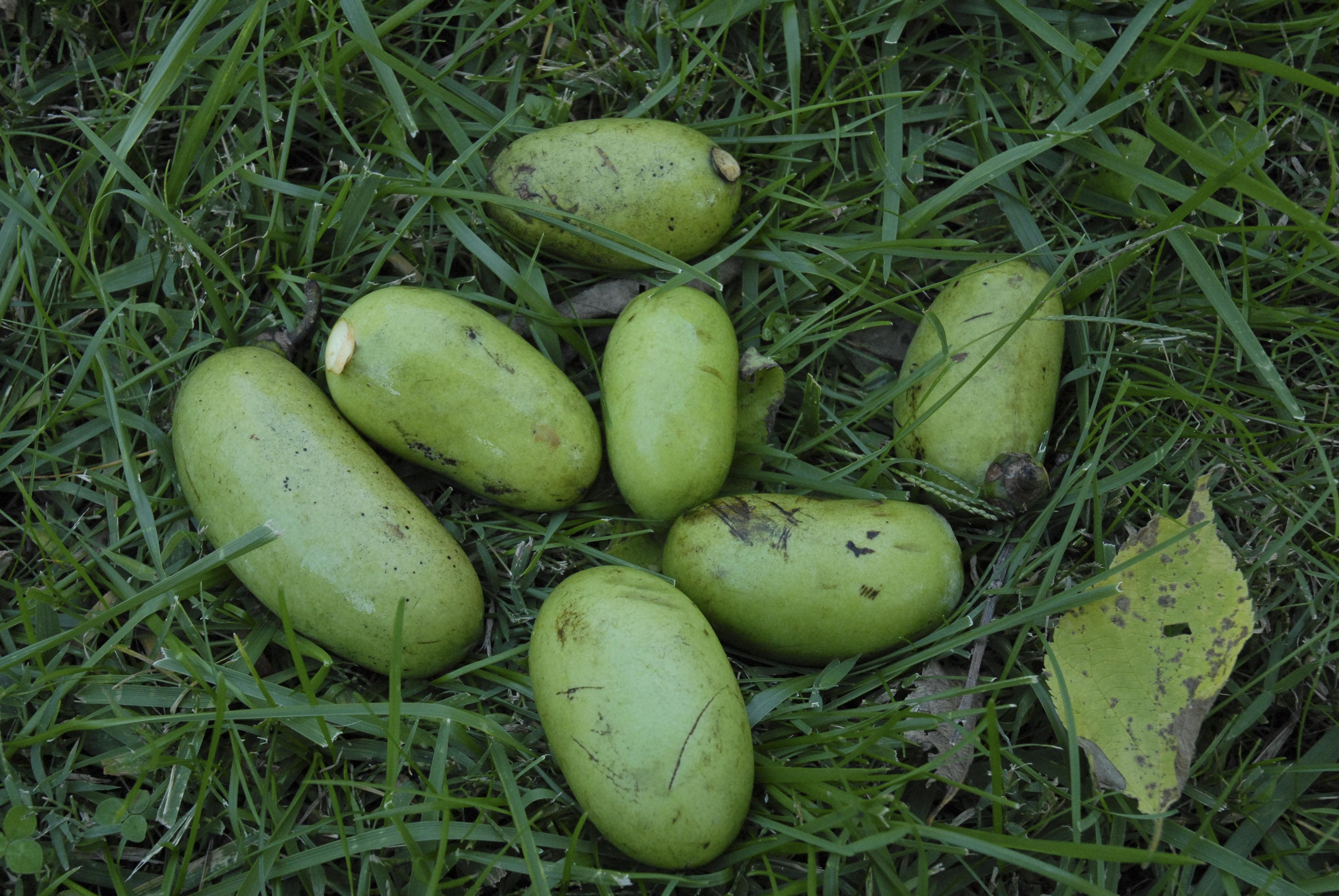pawpaw tree
Entry Type:
Scientific Name:
Common Name:
Myaamia Name:
Harvest Seasons:
Habitats:
Uses:
Habitats:
Locations:
| Reference Source | Reference Type | Archival Data | Comments | |
|---|---|---|---|---|
| Gatschet, A.S. ca. 1895 | Use - Food | In the traditional story of Young Thunder, William Pekongah, he describes the crops he had growing on his land 160 acres of reserve in central Indiana. "There I planted corn, wheat, potatoes, peas, tobacco, beans, apple trees, pumpkins, watermelons, cucumbers, onions, hay, straw, gooseberries, raspberries, blackberries, currants, turnips, tomatoes, pawpaws, cherries, strawberries, plums, blackhaws, peaches, walnut trees, pecans, hickory nuts, barley and rye". |
||
| Dunn, J.P. ca. 1900 | Use - Food | "missiminjakwi, pawpaw trees, eat pawpaws" |
||
| Pease, T. C. and R. C. Werner 1934 | Use - Food | "There were other trees as thick as one's leg, which bend under a yellowish fruit of the shape and size of a medium-sized cucumber, which the savages call assemina. . . They have five or six nuclei inside which are as big as marsh beans, and of about the same shape. I ate, one day, sixty of them, big and little. This fruit does not ripen till October, like the medlars" ("il y en avoit encore d'autres gros comme la jambe qui ployoient d'un fruit jaunastre de la figure et grosseur d'un moyen concombre que les sauvages appellent assemina, . . . Ils ont 5 ou 6 noyaux dedans qui sont gros comme de fevves de marais, et a peu pres faits de meme, j'en ay mange unjour soixante tant gros que petits, il n'est mure qu'au mois d'ocotobre, aussi bien que les neifles"). |
||
| Rafert, S. 1996 | Use - Food | Pawpaws were used as a snack food when in the woods. |
||
| Gatschet, A.S. ca. 1895 | Use - Food | "nasimini patek, the paw-paw fruit has fried, or dries up" |
||
| Gatschet, A.S. ca. 1895 | Use - Food | "nuxsiminaxkwi, the pawpaw tree and its fruit . . . the fruit is pulpy and higly prized on account of its sweet nutritious quality, shape oblong and up to four inches in length or over". |
||
| Gatschet, A.S. ca. 1895 | Use - Food | "noohsiimi$aahkwi", "noohsiiminaahkwi", and "nuximinaxkwaki" for the pawpaw fruit |
||
| Gatschet, A.S. ca. 1895 | Use - Food | "missi=mishaxkwi, pawpaw tree" |
||
| Rafert, S. 1989 | Use - Food | "Pawpaws they ate. That was considered a fruit and I still eat them. And by the way, there are going to be some this year. We're going to have a good pawpaw season. . . I eat them when they are dead ripe. And I can go through the woods, and smell it’s the time to hunt pawpaws. I just beat the 'coons and 'possums by a little bit. I introduced all my nephews and my grandsons to eating pawpaws. And the way to introduce 'em to it is to get them good and hungry out in the woods, and then as a last resort they'll eat one of 'em". |
||
| Gonella, M.P 2003-2006 | Use - Food | The fruits of pawpaw are gathered and eaten. |
||
| Dunn, J.P. ca. 1900 | Use - Food | [The Myaamia] eat paw paws. |
| Reference Source | Reference Type | Data | Comments | |
|---|---|---|---|---|
| Gleason, H.A. and Cronquist, A. 1991 | Habitat | Occurs in rich, damp woods in eastern and western Myaamia lands. |
| Reference Source | Reference Type | Data | Comments | |
|---|---|---|---|---|
| Rafert, S. 1989 | Dunn gives the Myaamia term "ha?siimi" for pawpaw. |
|||
| Gonella, M.P 2003-2006 | There is an area in the heart of eastern Myaamia lands called pawpaw alley, east of Peru along Highway 19. |
|||
| Anonymous 1837 | pawpaw mentioned |
|||
| Dunn, J.P. ca. 1900 | "mihsimini lakiihkwi", pawpaw bark |
|||
| Dunn, J.P. ca. 1900 | Paw paws were mentioned by Euclistia Mongosa |
|||
| Whitford, A. C. 1941 | Fibers from stems used in numerous historic objects, including coarse bags, fabrics and split bark bags of Ohio cave and rock-shelter dwellers, a bag from the Menomini where the pawpaw fiber is used only in the weft, a Potawatomi bag. Its use seems only limited by its distribution. |
|||
| Clark, J.E 1993 | The Shawnee collected this plant. |




